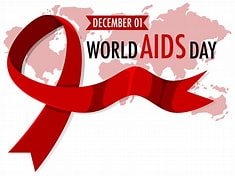
Blog
Thought leadership for today’s world.
Explore More Elephant blog posts written to inform and inspire as we listen, learn, live, better. Subscribe below to receive notifications of new posts.

The Power of Financial Literacy to Unlock Financial Potential
Financial literacy is the compass that helps us navigate the complex world of finance. It is the anchor that guides us through economic uncertainty to financial stability. It’s the knowledge that enables each of us to make informed decisions and avoid pitfalls. It’s not just about understanding money; it’s about shaping our futures.
Education is the foundation upon which financial literacy stands. From the basics of budgeting to the intricacies of investing, education paves the way for a brighter financial future to enable wiser choices with the tools to make intelligent financial decisions, save and invest more strategically, and empower individuals from all walks of life with the knowledge to succeed financially.

Seek to Equalize on World AIDS Day
According to the World Health Organization (WHO), approximately 38 million people were living with HIV/AIDS globally in 2019. In the same year, there were 690,000 AIDS-related deaths worldwide. In the US, based on the latest data from the Centers for Disease Control and Prevention (CDC), approximately 32,100 new HIV infections occurred in the United States in 2021, a 12% decline from 2017 and yet still 32,100 too many.
Today is the 35th commemoration of World AIDS Day, an annual event focused on remembering those we have lost, raising awareness about the HIV/AIDS epidemic, and supporting those living with the disease. The day also serves as a reminder that despite progress, including declining numbers of new HIV infections and the development of antiretroviral therapy (ART) that suppress the virus and prevent it from replicating in the body, stigma and discrimination against people living with HIV/AIDS remain a significant barrier to prevention, testing, and treatment.

Why Representation Matters
Alvin and I are Dads to two kids, a boy and a girl, and we are purposeful about celebrating each of them for all they are. However, as a white male raising two kids of color, I am particularly sensitive to the need to invest in them to ensure they are exposed to a broad range of experiences that cut across race, gender, and stereotypical lines.
Why, you might ask? Notwithstanding my shared responsibility with Alvin to create a purposeful, expansive, rich environment, our children's early experiences — including the hours spent consuming media — shape what they imagine to be possible for people who look like them, live where they live, or come from where they came from.

Remote, But Not Distant
An opposing narrative to everyone back in the office exists as we see a significant shift in how workers view their relationship with work, while at the same time, companies are making deliberate choices about post-pandemic organizational norms and culture.
I have led distributed teams domestically and globally for over twenty years. Remote work is not a new phenomenon. And, during COVID, the share of employed Americans working exclusively from home rose from 4 percent in 2019 to 54 percent in 2020. The great COVID experiment of moving everyone to a home office proved that a permanent office setting was unnecessary for all roles. The experiment provided many with a different experience and operating model.

The Changing Nature of Work
Most of us will spend a third of our life working.
Suppose you are reading this post in the United States. In that case, you may appreciate that we are a country defined by the notion of 'workism,' a term coined by American journalist Derek Thompson in his 2019 article for The Atlantic magazine, 'Workism Is Making Americans Miserable.'
And yet, in a post-pandemic world, we are experiencing a significant reset in defining our relationship with the 'thing' we call work. For many of us, myself included, who did or maybe still cling to a job for life's meaning and purpose, the pandemic woke us up to a new reality.
